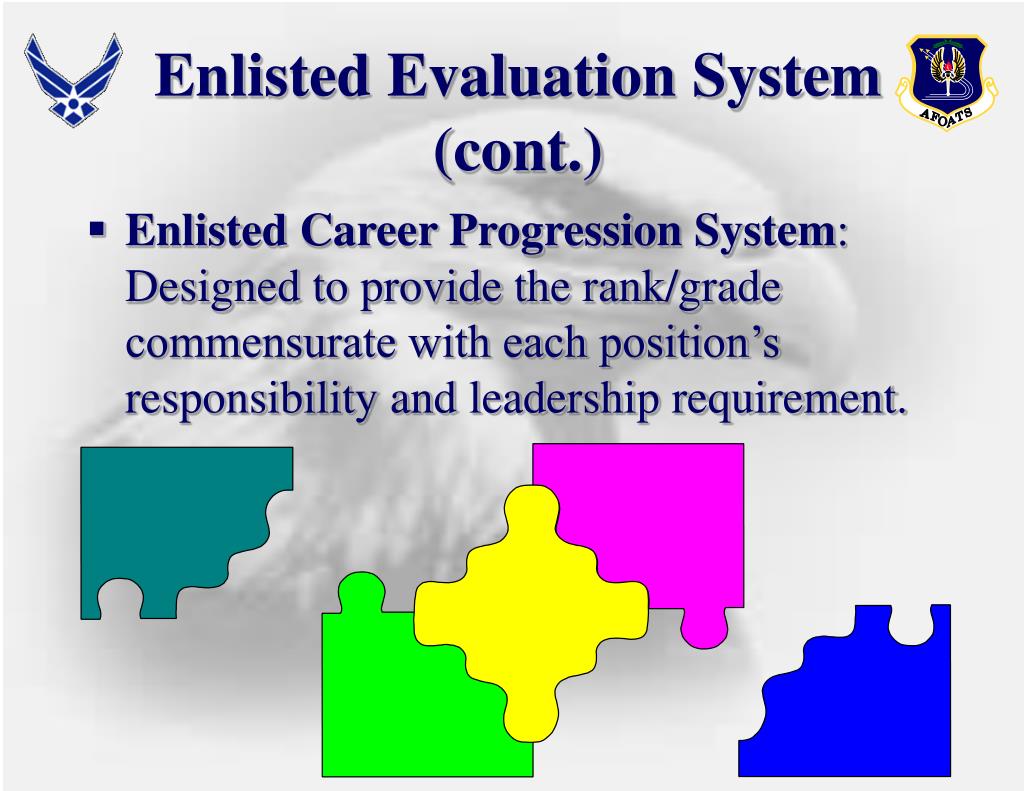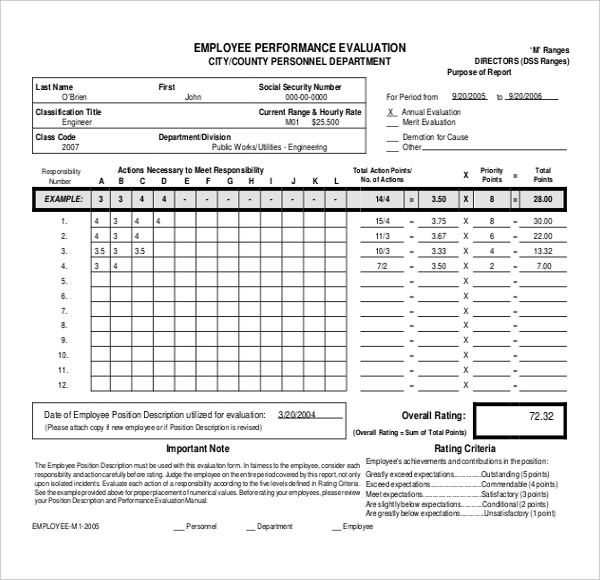

There are no restrictions on the remaining three promotion ratings. Must Promote is limited to the top 15 percent of time-in-grade/time-in-service promotion-eligible senior airmen and the top 10 percent of time-in-grade/time-in-service promotion-eligible staff and technical sergeants. Promote Now can be awarded to the top five percent of time-in-grade/time-in-service promotion-eligible Airmen from senior airman through technical sergeant. Those with a Promote Now receive a "significant advantage over their peers” those with a Must Promote receive an "advantage over their peers” and those with a Promote are given a rating "relative to their peers." The forced distribution authority sends a strong signal that the Airman is ready for immediate promotion.

Promote Now and Must Promote recommendations are limited in number to ensure only the highest-performing Airmen with the greatest potential to serve in the next grade receive them. Recommendations include Promote Now (PN), Must Promote (MP), Promote (P), Not Ready Now (NRN) and Do Not Promote (DNP). The total number of forced distribution quotas is based on the total number of time-in-grade/time-in-service promotion-eligible Airmen a commander has in a specific grade on the static closeout date.Įnlisted Promotion recommendations are in word-form now, rather than the numerical ratings. Airmen who are not time-in-grade and time-in-service eligible for promotion on their EPR static closeout date will only receive a performance assessment without a promotion recommendation.įorced distribution limits the number of top promotion recommendations unit commanders are authorized to award to time-in-grade/time-in-service promotion-eligible junior enlisted Airmen. Forced distribution and restricted stratification are completed by grade regardless of Air Force Specialty Code. The new evaluation reports include a section for promotion recommendations that curbs inflation through forced distribution and stratification restrictions. The system was built to ensure Airmen who received the highest promotion recommendations from their commanders would have a significant advantage, while also ensuring Airmen who received a promote recommendation would remain competitive. Job performance remains the most important factor when considering Airmen for promotion, and top performers now have the advantage toward promotion they deserve. Performance assessment, along with input from supervisors at all levels, is helping identify and promote the Air Force’s top performers. Failing to verify EPRs will impact your promotion consideration.ĮPR Rating Codes listed on Career Data Brief and DVR All Airmen must verify the EPR close out dates and ratings listed on the DVR with the EPR ratings indicated on the documents filed in PRDA.
Enlisted evaluation system verification#
Any Airman without an SCOD EPR updated in the Military Personnel Data System, reflected on their Data Verification Record in the virtual Military Personnel Flight and filed in the Personnel Records Display Application (PRDA) accessible through AFPC SECURE, will not be considered for promotion.Īn EPR reflected on an Airman’s DVR does not indicate that it has been made a matter of record in PRDA. To be eligible for promotion consideration, all Airmen must have an EPR that closes out on the Static Closeout Date (SCOD).

However, EPRs are no longer required for regular Air Force Airmen in the grade of airman first class and below with less than 36 months' time-in-service or Air Reserve Component Airmen below the grade of senior airman. The focus on Enlisted Performance Reports should be to document how well Airmen performed their jobs and the qualities Airmen bring to accomplishing the mission, versus to what specific position or billet the Airman is assigned.ĮPRs are required to be completed on an annual basis based on grade of the Airman being rated.


 0 kommentar(er)
0 kommentar(er)
